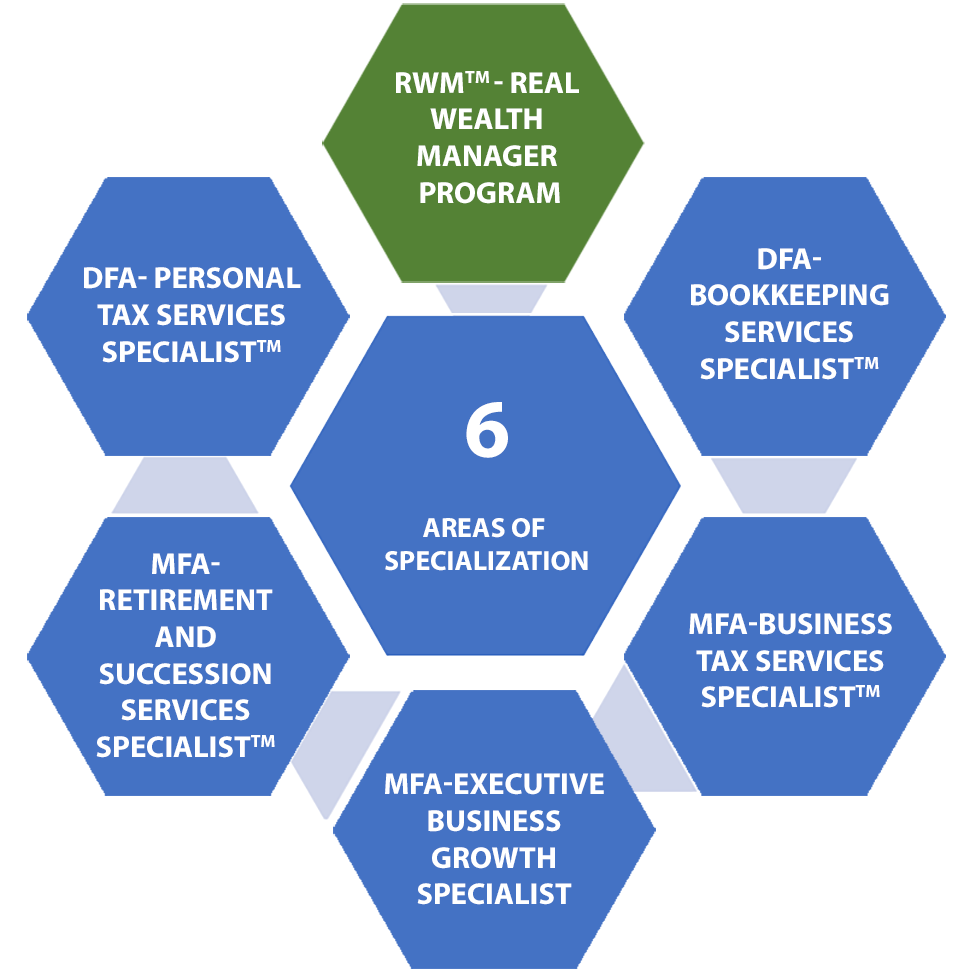Strategy and Process: Giving Good Advice Demands Both

Tax specialists add tremendous value over and above the role of a traditional tax preparer. Rather than just calculating and filing the annual return, they offer holistic tax planning advice to reduce a family’s overall tax liability over the long run. They certainly use their knowledge, experience and skills to maximize refundable and non-refundable tax credits in the short term; but their long-term role is deeper and broader.
In this second of a four-part series, Knowledge Bureau founder Evelyn Jacks explains how the tax and financial services industry is evolving with a new economy, and what is required to be a leader and meet clients’ needs in a brand new tax and  financial services industry.
financial services industry.
Briefly stated, a tax specialist’s long-term role is to help families build, grow, preserve and transition assets that retain their value, after taking into account taxes, inflation and fees. This offering is a much deeper, broader service than traditional tax preparation: the tax specialist assists a family with the management of income and capital, pre- and post-tax. In the process, defined below, tax specialists fulfill a three-part role.
The Process Used by Tax Specialists. Tax specialists may be independent business owners or they may work in accounting, legal or financial services firms or in government, for example in the offices of the public trustee. However, all of them are dedicated to ensuring that the Six Steps of a Tax Advisory Process, as taught by Knowledge Bureau professional courses in the DFA-Tax Services Specialist Program, are consistently followed:
-
Periodic Client Consultations. Conducting a thorough interview at least annually to determine changes in life events, financial events and economic events that affect the tax return, as well as understanding client objectives for savings and debt management.
-
Ongoing Tax Research. Conducting research on applicable provisions and laws that may impact the taxpayers they are working with.
-
Tax Compliance. Assembly of information on tax returns and the multiple available variations to get the best after-tax results, not just in the current tax year, but in carry-back and carry-forward periods, or at audit time.
-
Financial Analysis. Analyzing books and records for additional tax savings or potential tax risks, and evaluation of after-tax results against family wealth management goals.
-
Tax Planning. Positioning the client for the most favorable financial opportunities in the future: tax-efficient debt management, tax-efficient employment negotiations, tax-efficient investing and retirement planning and, finally, setting the stage for an orderly transition of assets through tax-efficient estate and succession plans with optimal tax implications.
-
Stewardship of Sustainable Income and Wealth. Quite possibly the most important role of all is the advocacy and stewardship a confident tax specialist brings to the negotiation of required tax payments and payment terms with the CRA. This is, after all, about what financial resources your clients get to keep.
In other words, by following a consistent process for tax compliance and planning, tax specialists actively manage the strategy to minimize tax on both income and capital. And they maximize opportunities to seek tax-efficient investment opportunities in order for clients to accumulate, build, preserve and transition sustainable family wealth, by finding new money with tax savings.
They are focused on all the important relationships to achieve those goals: with the client, the client’s family and working with all the professional stakeholders to obtain the best after-tax results. This includes management of the relationship with CRA. Because of their extensive research skills, tax specialists can expertly prepare an audit defense, both pre- and post-assessment.
And, because of their exposure to peer-to-peer learning and networking events that provide opportunities to engage not only with their own profession, but with all the professional stakeholders – tax, legal, insurance, investment, retirement and business specialists – they truly differentiate themselves and their unique value proposition.
In short, they practice the discipline of Real Wealth Management in providing outstanding value and advice.
Evelyn Jacks is Canada’s most trusted educator in the tax and financial services. Founder and President of Knowledge Bureau and developer of the Real Wealth Management discipline, she is also the author of 53 books.
Additional educational resources: Advisors who truly want to offer a new value proposition and build strong, inter-generational, multi-advisory relationships throughout personal and financial lifecycles, will want to use a new approach: Real Wealth Management. Free trials of courses that qualify for this program’s accreditation are available. Also mark your calendars for two other like events that will help you with this process, the CE Summits and Distinguished Advisor Conference, both taking place this fall.
COPYRIGHT OWNED BY KNOWLEDGE BUREAU INC., 2018.
UNAUTHORIZED REPRODUCTION, IN WHOLE OR IN PART, IS PROHIBITED.
 |
 |
 |
 |
|
Refer a Friend |
Research |
Calculators |
Course Trials |
 |
 |
 |
 |